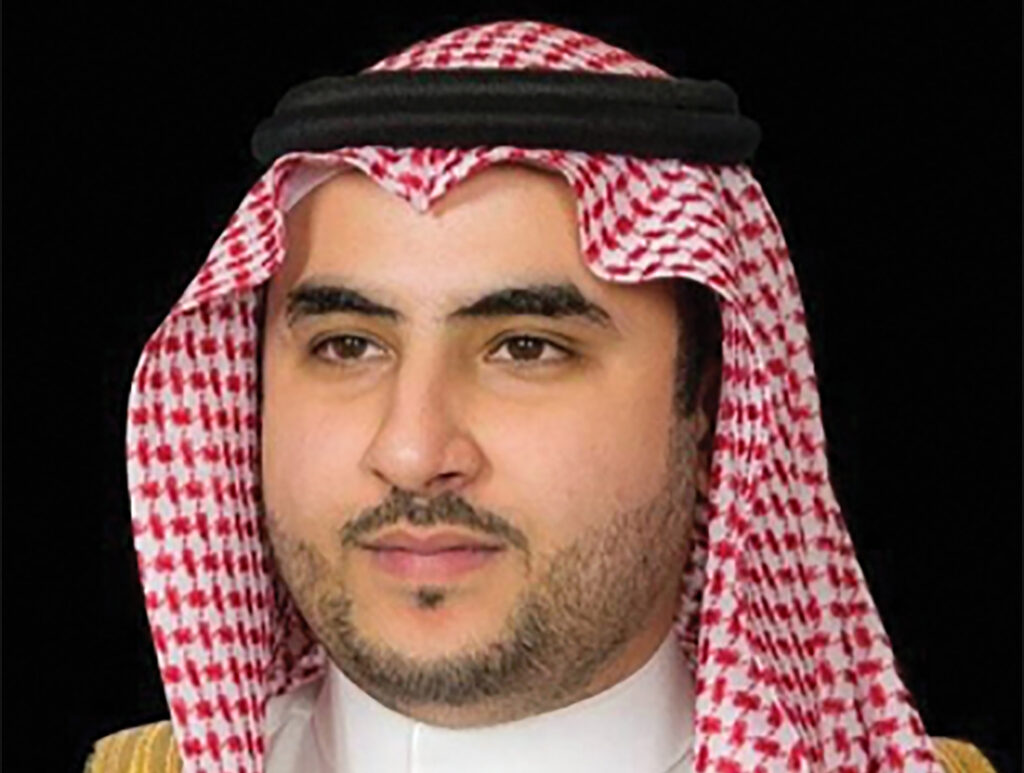I would like to thank United States Central Command for giving me the opportunity to write the editorial for this special edition of Unipath magazine dedicated to peace and recalibration. Under the leadership of His Majesty King Salman bin Abdulaziz, custodian of the Two Holy Mosques, and His Royal Highness Crown Prince Mohammed bin Salman, the Kingdom of Saudi Arabia is one of the foremost countries contributing to international efforts to promote peace and eradicate terrorism.
As Saudi Muslims, we are responsible not only for the protection of Islamic holy sites, but also for purging Islam of ideological cancers that terrorist leaders have attached to it by abusing holy texts and repurposing them to serve unholy interests. Certainly, those whom God has honored by selecting from among them the Prophet of Mercy are capable of protecting the divine message and stopping anyone trying to tamper with it or exploit it for extremism, violence and terrorism.
In Saudi Arabia, we realized early on that violent military campaigns to combat terrorism may not achieve the desired goal of peace and stability if they are not also accompanied by ideological campaigns that guide ideologically deviant extremists to the right path. We are certain that many terrorists have been misled and have little real knowledge of Islam and its noble humanitarian principles. Therefore, we feel a patriotic and humanitarian duty to rehabilitate those who can be rehabilitated.
To this end, over the course of a single decade, Saudi Arabia’s wise leadership established four centers to combat extremist Islamist ideology. The first, established in 2007 with the aim of rehabilitating and reintegrating “jihadists” returning from fighting outside Saudi Arabia, was the Prince Mohammed bin Nayef Center for Counseling and Care, while the most recent, the Ideological Warfare Center, was founded by the kingdom’s Ministry of Defense in 2017. The Ideological Warfare Center is an international think tank dedicated to refuting extremist thought and fostering the noble humanitarian concepts of Islam.
Other countries have recently adopted Saudi policy on the ideological fight against terrorism. Countries such as Uzbekistan, Kazakhstan, Kyrgyzstan and Tajikistan, among others, have begun repatriating citizens and families imprisoned or detained in camps in other countries. These people were former followers of international terrorist organizations like Daesh. Following the Saudi model, these returnees are engaged in state-sponsored ideological and psychological rehabilitation.
As a commander of the Saudi Royal Air Force, I was also keenly aware that the security enjoyed by Saudi citizens would not have been possible without the Saudi authorities’ focus, in cooperation with our international partners, on refuting terrorist rhetoric, tracking and drying up the financial sources of terrorism, and confronting the ever-changing tactics terrorists use to try to rebound from military defeat.
Terrorist tactics have evolved with changing conditions on the ground. Terrorist organizations used to espouse absolute secrecy by hiding among populations to avoid detection by security forces. They were also active in cyberspace to amplify their operations and launch recruitment campaigns to attract more terrorists. But after Daesh occupied cities in Iraq and Syria in mid-2014, terrorists appeared boldly in public. When the Global Coalition to Defeat ISIS announced its war on the terrorist organization, Daesh adopted urban warfare and employed dirty tricks, undeterred by any moral, humanitarian or religious scruples.
After its defeat by the coalition, Daesh changed its approach once again. Its cadres splintered and burrowed into mountains and deserts away from cities. They adopted guerrilla-style hit-and-run tactics. Small cells attacked isolated targets with the goal of stretching security forces thin. To win this kind of asymmetric war, regular armies need to work together constantly. They must share expertise and experiences in coordinating operations and devising tactics tailored to guerrilla warfare.
Technology can be a double-edged sword. Terrorists have shown they can use emergent technology such as drones and social media to serve their destructive purposes given their varied academic and military backgrounds. There is no way to defeat this metastasizing evil except through collective action and constant communication among institutions involved in combating terrorism across the globe. As the saying goes: “One hand cannot clap.” The international community must also exert all possible pressure on terrorism-sponsoring states to prevent them from destabilizing the region.
Out of a belief in the importance of international partnerships to combat terrorism, the kingdom has not shied away from joining international coalitions to defeat the forces of terror and darkness. It has also created some of its own. In late 2015, 41 Islamic countries responded to Crown Prince Mohammed bin Salman’s call to establish the Islamic Military Counter Terrorism Coalition (IMCTC) in Riyadh. Its main objective is to promote the values of moderation, centrism and tolerance implicit in Islam and to combat terrorist narratives in the media.
The IMCTC also seeks to coordinate with international organizations concerned with the security of the region, including U.S. Central Command and U.S. Africa Command, to bring peace to areas where terrorist organizations have undermined security. We expect the IMCTC to mobilize the international community to support Iraqi recovery efforts and root out the extremist and deviant ideology left behind by Daesh.
Finally, in our view, peace is linked to how fairly a society treats its citizens. Societal injustices lead to resentment. This leaves resentful individuals vulnerable to all manner of destructive ideas, including violent extremism. For this reason, countries whose societies are threatened by violent extremism should work to eliminate causes of extremism and not just extremists themselves. The roots of extremism may be social, economic, political or psychological, but just as the nations of the world forge military and political alliances to eliminate terrorism and terrorists, they must also cooperate with each other and share experiences and successes in eliminating the causes of violent extremism.
His Royal Highness Prince Khalid bin Salman bin Abdulaziz Al Saud, Saudi Deputy Minister of Defense

